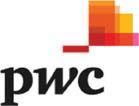UK government extends the operation of the Northern Ireland Protocol
Michael McNeill considers the need for contingency planning due to the unknown time period under which Protocol easements continue to operate.

The Government has announced that it has extended the grace period and easements currently in place regarding the Northern Ireland Protocol pending the outcome of ongoing discussions with the EU.
In a Written Ministerial Statement on 7 September 2021, Lord Frost, Minister of State in the Cabinet Office, announced the following (excerpt from statement set out below):
“… Following on from this, to provide space for potential further discussions, and to give certainty and stability to businesses while any such discussions proceed, the Government will continue to operate the Protocol on the current basis. This includes the grace periods and easements currently in force. Operational and other guidance will be updated to reflect this approach. We will ensure that reasonable notice is provided in the event that these arrangements were to change, to enable businesses and citizens to prepare.”
HMRC has stated that it will publish more detailed guidance on how the extension will apply to indirect taxes, in particular as regards the movement of goods between Great Britain (GB) and Northern Ireland (NI).
Current easements
Some of the current indirect tax easements in place include:
- No pre-notification requirements for Products of Animal Origin (POAO), certain animal by-products (ABP), and High Risk Food Not Of Animal Origin (HRFNAO).
- No supplementary declarations for post and parcels.
- No NI fixed establishment criteria for a UK Trader Scheme authorisation.
Whilst 1 above will be industry specific and impact on the consumer market in NI, 2 and 3 have the ability to impact on the majority of business. With that in mind, as a way of a reminder of the possible implications of these changes, we recap both these below.
Post and parcels
Declarations for post and parcels are generally only required where the goods are either:
- prohibited or restricted; or
- being sent from a business to another business where the value of the good is greater than £135.
We are aware that business is currently facing issues with accurately completing declarations for parcels greater than £135 because of a lack of quality data. Once the easements are withdrawn therefore, the removal of the £135 limit will only create a further resource and administration burden for business which should be considered as a matter of contingency planning. Business should therefore review supplier and customer agreements to ensure and agree roles and responsibilities within the supply chain and confirm that the necessary information and data points will flow through the declaration process.
UK Trader scheme
Business seeking to declare goods ‘not at risk’ upon arrival in NI (with the EU tariff rate on these goods above zero) must apply for authorisation under the UK Trader Scheme (UKTS).To apply, one of the two establishment criteria must be met. A trader must therefore;
- be established in Northern Ireland; or
- have a fixed place of business in Northern Ireland and meet additional requirements in regard to customs compliance, records, control and systems.
If the business is not established in Northern Ireland or has not got a fixed place of business, the UKTS may be used where all the following conditions are met:
- customs operations are carried out in the UK and an indirect customs representative in Northern Ireland (such as the Trader Support Service) is appointed; and
- the goods are supplied to a business in Northern Ireland which has a fixed place of business from where those goods are provided for, or sold to end consumers, and that business is either:
- authorised under the UK Trader Scheme; or
- could be authorised, if they were the importer of those goods.
Post easement, it is expected that those business not established in NI will no longer be able to appoint the Trader Support Service as an indirect representative. As such, and in the meantime, business should consider and explore alternative options with regards to representation, which may, in the most extreme of cases lead to a requirement for these businesses to create a sufficient fixed place of business in Northern Ireland to allow to for continuity of NI trade.
Implications
Whilst the extension of these measures will be welcome for some, given the unknown time period in which these easements are likely to come to an end, business should make contingency plans to meet these requirements to ensure continuity of trade, particularly in respect of supplies made to NI.

